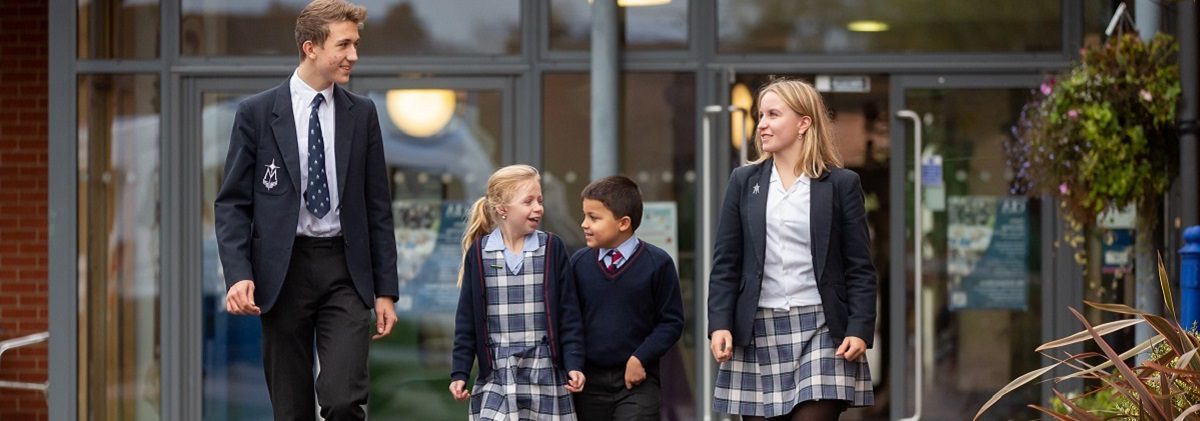
Overview of the History curriculum at OLA
History is a core subject in years 7 – 9 and is a popular option for both GCSE and A Level. OLA pupils are encouraged to participate in individual and group activities, to ask questions and think independently, to develop a wide range of written and oral skills and above all to enjoy studying the past and how it has shaped the world today.
Pupils learn about key aspects of this country’s past across a wide time-span and also study some of the history of other countries and cultures. They explore how to write clearly and logically and to use evidence critically. They develop their understanding through discussion, debate and role-play, through reading, visual and media sources. They use ICT to investigate issues, record findings and make presentations. Learning is also enriched through trips and, at Sixth Form level, by hearing eminent historians speak about their areas of expertise.

Years 7 to 9 History Curriculum
The curriculum aims to provide pupils with a chronological overview of British History and a sense of Britain’s changing place in the world. The overall aim is to provide pupils with an enriched contextual understanding as the basis of future study and a framework for citizenship.
Year 7 begins with an exploration of the History of the school, and then moves on to focus on Britain in the Middle Ages, including the Battle of Hastings and Norman Conquest, the signing of the Magna Carta, and the nature of everyday life. In Year 8 pupils take the story further into the Tudor and Stuart period, consider the causes and impact of the Industrial Revolution and make a detailed study of the Atlantic slave trade and its abolition. The Year 9 course aims to provide a backdrop for IGCSE. Pupils gain an understanding of the events and significance of the First and Second World Wars and investigate the campaign for women’s suffrage at the start of the Twentieth Century.
The work in Years 7 to 9 is assessed in various ways, for example, classwork and homework assignments, end of topic tests and an end of year examination usually set after the May half term break.

Trips for History in Years 7 to 9
We have a regular pattern of trips that allows pupils to visualise and experience parts of their History course.
Year 8 spend a day at the Black Country Museum discovering how the Industrial Revolution changed the way people lived and worked. Favourite activities include going down a coal mine, enjoying the fairground rides and savouring authentic Victorian fish and chips!
Year 9 visit the Imperial War Museum, looking at the First World War exhibits and preparing a short video documentary about some of the Second World War artefacts.

Years 10 and 11 History Curriculum
CIE IGCSE History Specification Code 0470
The IGCSE course is focused on the 20th century. The legacy of the First World War and the Versailles settlement, the Weimar Republic, the rise of Hitler and the outbreak of the Second World War in 1939 form the basis of work in Year 10. In Year 11, pupils investigate life in Nazi Germany. Then the focus moves on to events after the end of World War II: the origins and events of the Cold War, including the Berlin blockade, Cuban Missile Crisis and Vietnam War.
Pupils develop an understanding of cause and effect, continuity and change, similarity and difference and develop their critical reading, source analysis and communication skills.
This course is assessed as follows:
Paper 1: ‘The 20th century: International Relations since 1919’ and ‘Depth Study B: Germany 1918–45’, 40%, examined at the end of Year 11.
Paper 2: ‘The 20th century: International Relations since 1919: historical enquiry’, 33%, examined at the end of Year 11.
Paper 3: Coursework (to focus on an aspect of the history of Germany 1918-45). Coursework will be launched at the end of Year 10 and completed early in Year 11.

Trips for History in Years 10 and 11
The History Department runs a biannual trip to the First World War Battlefields in Belgium and France, touring the Ypres Salient and the Somme. Pupils visit a number of British and German cemeteries, museums and landmarks, reflecting on the impact and legacy of the war and helping to gain a wider understanding of the context of much of the IGCSE course. There is also an opportunity to participate in the nightly Last Post ceremony at the Menin Gate in Ypres.

